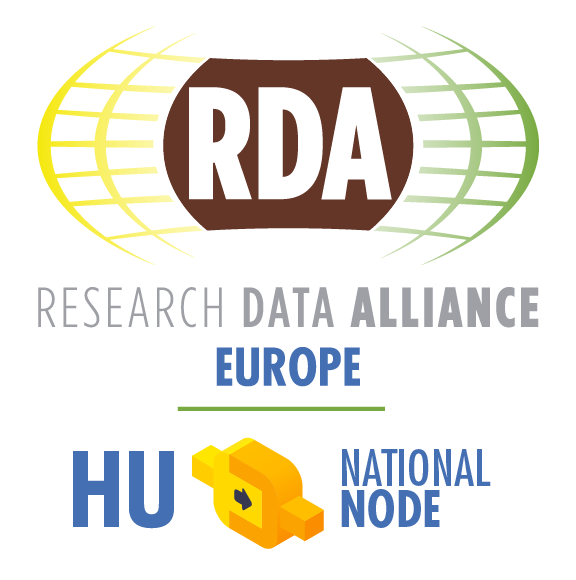About HRDA
HRDA is the Hungarian National Node of RDA, the Research Data Alliance of Europe.
Hungary, a country of high standing in scientific research, has a major interest in collecting, handling and repositing research data according to international standards. However, as of today, the concept of Research Data Management (RDM) not subject to institutional policies in Hungary whilst funding available for such purposes is also scarce. The prevailing attitude is that research data are owned by the researchers who have created them, and public access is conditional and depends only on the goodwill of the creators (“owners”) of such data. Nevertheless, there exist numerous publicly available data sources, usually without any attempt made towards standardisation. The National Research, Development and Innovation Office set up an advisory board for developing an Open Science strategy, and the board has prepared its recommendations. Should those recommendations be acted upon, information and guidance from RDA will be needed. Regardless of any national regulation, Hungarian researchers need proper guidance and support in order to meet RDM requirements whenever they participate in European projects. It is not possible to develop RDM further without the establishment of an organisation - the Hungarian node of RDA.
HRDA primary objectives will be the following:
- To develop and support the Hungarian RDM community;
- Promote RDA membership;
- To provide a forum for the interested parties: the researchers, IT and other professionals, librarians/archivists, to build bridges between these often unconnected communities;
- Organise Hungarian participation in RDA’s international activities;
- Provide help and consulting for the preparation of research proposals regarding RDM;
- Liaise with different governmental offices and the Hungarian Academy of Sciences;
- Provide support and advice for the standardisation of existing data resources locally and at international level;
- Discover the specific local needs and possibilities and support those with the resources of RDA;
- Organise local events and trainings in the context of data management and related EU policies;
- Develop and manage the professional activities in some focus areas (including but not limited to the national golden nugget topic).
HRDA structure
HRDA is led by an operative body consisting five members:
- Fazekas-Paragh Judit (Debrecen University and National Library)
- András Holl (Library and Information Centre of the Hungarian Academy of Sciences)
- Gyöngyi Karácsony (Debrecen University and National Library)
- László Kovács (Institute for Computer Science and Control)
- János Mohácsi (Governmental Information Technology Development Agency)
The leader of the operative group (coordinator) is András Holl.
Strategic decisions are made by the council consisting the delegates of member organisations.
There are four workgroups:
- International relations (RDA, EOSC; lead: Mohácsi J.)
- Internal relations (HUN-REN, NKFIH; lead: Karácsony Gy.)
- Data repositories (lead: Kovács L.)
- Dissemination, training (lead: Fazekas-Paragh J.)

